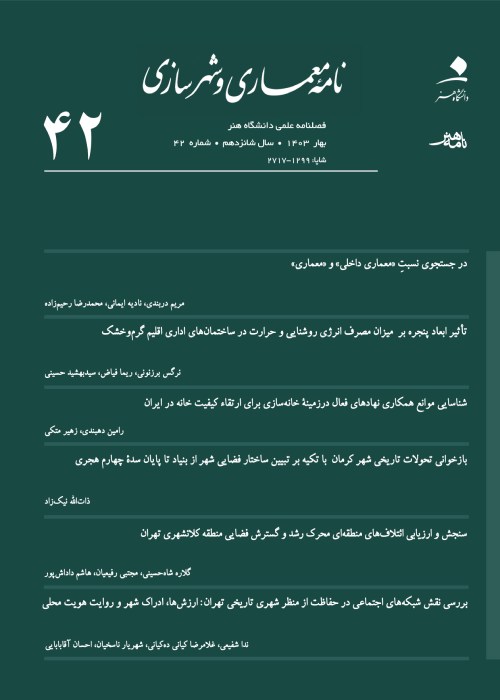Power and Public Interest: A Critical Analysis of Formulating Public Interest in Urban Development PlansCase Study: Qiam Street, Yazd
How is power exercised in planning practice? This “inevitable question” has been around in planning theory for many years, and many researchers have addressed this issue in different ways. Still, the impact of power relations on various aspects of the planning process and city development plans is remained controversial and ambiguous. Also, the inseparable links between public interest and planning have to affect public interest by power relations. Although many efforts have been made to explain the public interest in planning, the impacts of power relations on formulating the public interest are blurred. In this regard, this paper seeks to explain the influence of power relations on public interest's conformation by providing a discourse approach to the radical conception of power. According to this approach, the discourse as an “invisible power” ideologically shapes individuals' and groups' wants and desires. Based on Gaventa’s “cube of power,” the authors applied the mentioned approach to modify Lukes’ “radical view” deficiencies. To investigate this issue, Fairclough's framework is used for critical discourse analysis (CDA), which states the nature of the dialectic of power and discourse in a critical framework and interprets it in the context of its social practice. A controversial live local TV talk show was selected as the text of critical discourse analysis. The participants of this TV program were from significant principal players in the Qiam street improvement plan. This case study's results, based on the improvement plan of Qiam street of Yazd, show that the invisible power plays a notable role in the conformation of public interest’s substance. This role is manifested in how various orders of discourse combine and bring about discursive and social change. Two discursive mixes were identified: one dominant and one competing discursive mix. Findings show that the competing discursive mix has challenged the limited and utilitarian perception of public interest represented by the dominant discursive mix. This conception of public interest which represented by proponents of the plan, defines interests mostly in economic and monetary terms and insists on the value that the plan will bring about. Similarly, the opponents of the improvement plan adopted such a bounded conception of public interest too. They opposed the plan because its implementation was interfering with their business. While the dominant discursive mix included rational planning discourse, project management discourse, expert-official and economic interest discourses, the competing discursive mix is shaped by activism and participation discourses. As Fairclough indicates, these re-articulations of the orders of discourse are both a means and a sign of discursive and social transformation in a relatively creative way. In the case of Qiam street, these transformations led to a broader concept of ‘the public’ but they could not transform the conception of ‘the interests’ very much. In conclusion, even though this transformation has not changed utilitarianism’s hegemonic position, it has extended the concept of 'the public' and relatively democratized the planning process. Therefore, it can be expected that future urban design practices, at least in Yazd’s old city, would consider some forms of participation in the implementation phase.
- حق عضویت دریافتی صرف حمایت از نشریات عضو و نگهداری، تکمیل و توسعه مگیران میشود.
- پرداخت حق اشتراک و دانلود مقالات اجازه بازنشر آن در سایر رسانههای چاپی و دیجیتال را به کاربر نمیدهد.



